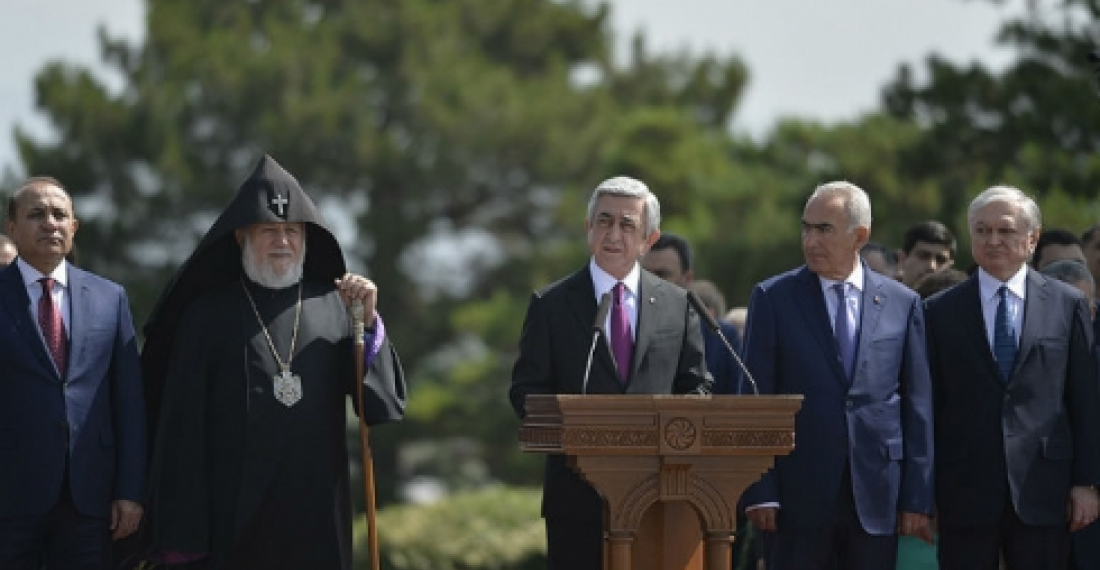Armenia marked First Republic Day on Saturday, with the country’s leaders gathering in Sardarapat outside Yerevan to mark the occasion.
The first Armenian republic lasted two and a half years from 28 May 1918 before the Bolsheviks took control. Independence was restored in 1991.
President Serzh Sargsyan used Saturday's ceremony to refer to hostilities in Nagorno-Karabakh. Dozens were killed after four days of fierce fighting at the beginning of last month between Armenia and Azerbaijan.
“Military hostilities that unfolded at the early April revealed more vividly some realities – good or bad, within and around us,” Sargsyan said. “Among all that the most important one for me was our new generation – the generation born with the independence, generation that proved to us and to all that they are the masters and guardians of our State.”
Sargsyan was accompanied by Garegin II, head of the Armenian Apostolic Church, and other political, military and religious leaders.
The town of Sardarapat is revered by Armenians because it is where Turkish forces were repelled at a major battle in 1918. Saturday also sees many other celebrations and events taking place across Armenia to mark First Republic Day.
SOURCE: president.am and agencies
PHOTO: from president.am






